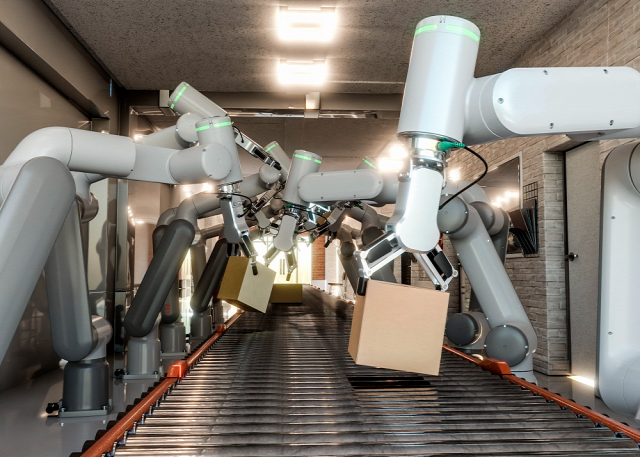
The Middle East and Africa (MEA) Factory Automation Market is witnessing significant growth, fueled by technological advancements, increased investments in industrial infrastructure, and a growing emphasis on operational efficiency. This transformation is playing a crucial role in modernizing industries across the region, enhancing productivity, and ensuring competitiveness in the global market.
The Middle East and Africa factory automation market are witnessing significant growth due to various factors driving the adoption of automation technologies across industrial sectors. There is a growing emphasis on improving operational efficiency and productivity in manufacturing processes.
Middle East and Africa Factory Automation Market by End User:
- Oil and Gas Industry
- Chemical and Petrochemical
- Automotive and Transportation
The growing emphasis on workplace safety and the rising labor costs in certain MEA countries are propelling the adoption of automation solutions. Manufacturers in the region are beginning to realize the long-term advantages of investing in factory automation, such as shortened production cycles, enhanced product quality, and more efficient resource use. Consequently, the factory automation market in the Middle East and Africa is set for sustained growth as industries aim to utilize automation technologies to stay competitive and meet the changing demands of the market.
Key Drivers in Middle East and Africa Factory Automation Market
- Technological Advancements: Rapid advancements in automation technologies, including robotics, artificial intelligence (AI), and the Internet of Things (IoT), are key drivers of market growth. These technologies are enabling smarter and more efficient manufacturing processes.
- Investment in Industrial Infrastructure: Governments and private sectors in the MEA region are heavily investing in upgrading industrial infrastructure. These investments are aimed at enhancing production capabilities and supporting the adoption of advanced automation solutions.
- Operational Efficiency: The need to improve operational efficiency and reduce production costs is prompting industries to adopt automation. Automated systems enhance precision, reduce human error, and increase the speed of production processes.
- Regulatory Support: Supportive government policies and initiatives aimed at promoting industrialization and technological adoption are providing a conducive environment for the growth of factory automation.
Request A Free Detailed Sample on Middle East and Africa Factory Automation Market!
MEA Factory Automation Market Challenges
Despite the promising prospects, the MEA Factory Automation Market faces several challenges:
- High Initial Costs: The high initial investment required for implementing automation solutions can be a barrier for small and medium-sized enterprises (SMEs) in the region.
- Skill Shortage: There is a shortage of skilled professionals capable of managing and maintaining advanced automation systems. This skill gap needs to be addressed through training and development programs.
- Infrastructure Limitations: In some parts of the MEA region, inadequate infrastructure can hinder the adoption of advanced automation technologies.
- Cybersecurity Concerns: As factories become more connected through IoT and other technologies, the risk of cyberattacks increases. Ensuring robust cybersecurity measures is crucial to protect automated systems.
Future Outlook
The future of the MEA Factory Automation Market looks promising, with continued advancements in technology and increasing investments in industrial infrastructure. Collaborative efforts between governments, industry stakeholders, and technology providers will be essential in overcoming challenges and driving further growth.
Conclusion
The Middle East and Africa Factory Automation Market is poised for substantial growth, driven by technological advancements, investments in industrial infrastructure, and a focus on operational efficiency. As industries across the region embrace automation, they are set to achieve higher productivity, improved quality standards, and enhanced competitiveness in the global market. Addressing challenges such as high initial costs, skill shortages, and cybersecurity will be crucial to unlocking the full potential of factory automation in the MEA region.

